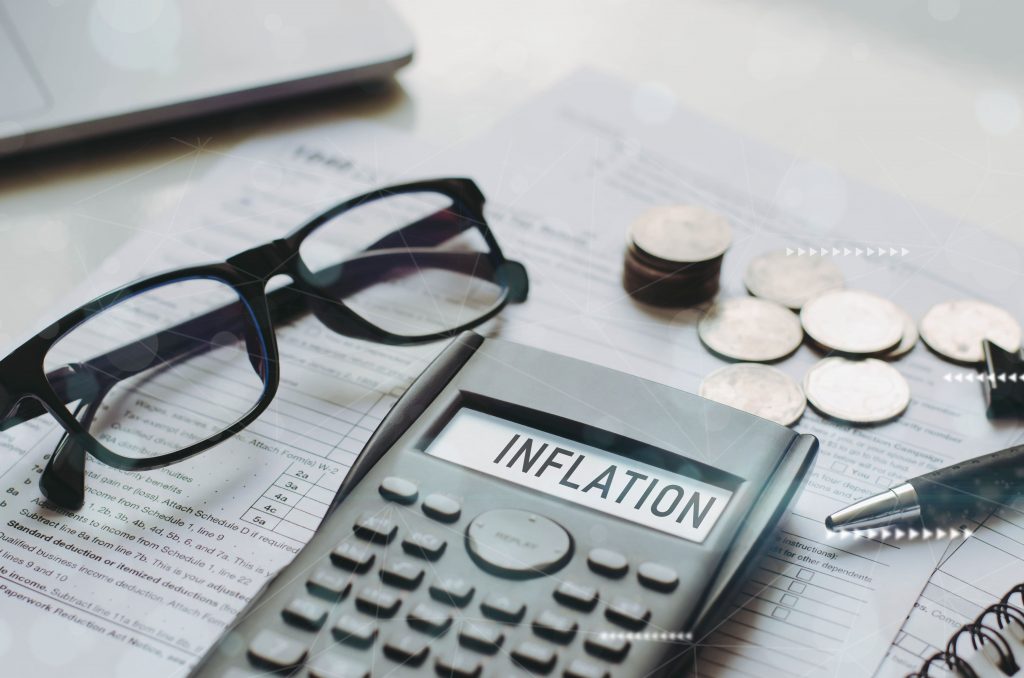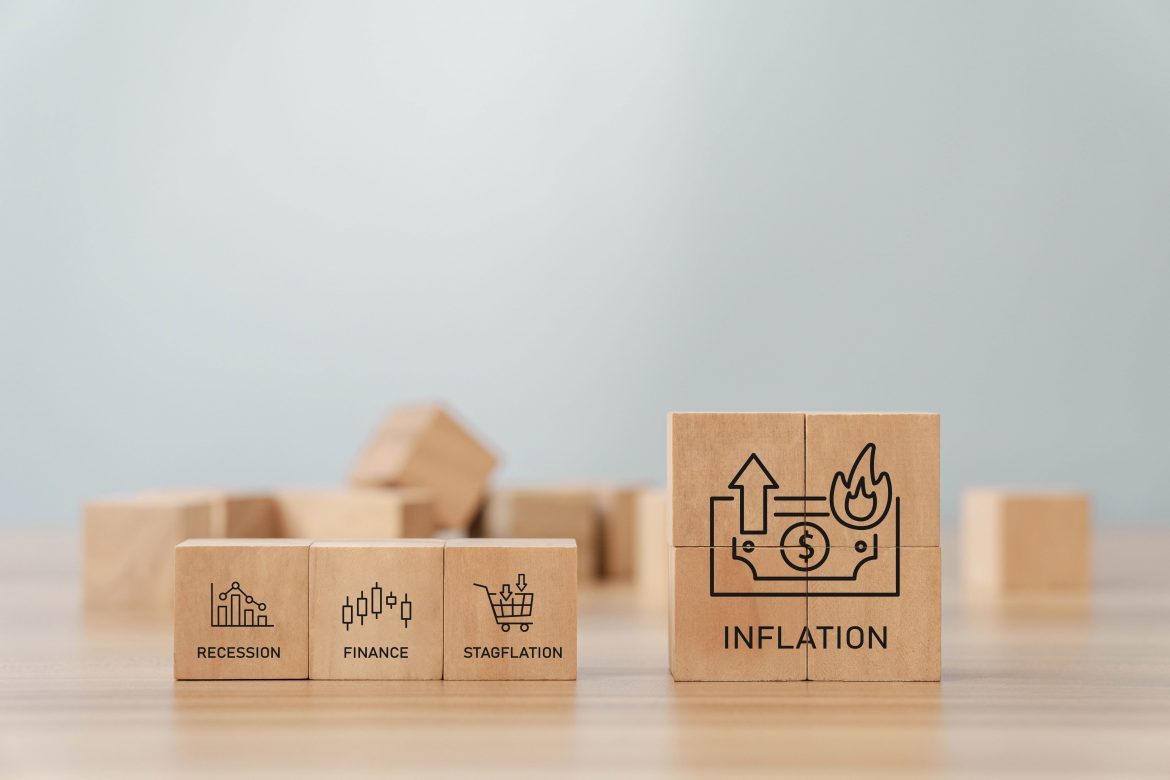When it comes to money, inflation can be a quiet killer. It might not hit you until you start to feel the pinch in your wallet that it has an effect. Don’t worry, though. Knowing how inflation affects your money is the first thing you can do to keep it safe.
We are going to talk about inflation and how it can hurt your wallet in this piece. We will look at the different ways that inflation can hurt your finances, from making prices go up to making your money worth less. Because you know more about inflation, you can protect your money and make smart decisions that will lessen its effects.
What Is Inflation?
When the prices of goods and services in an economy keep going up over time, this is called inflation. It means that money has less buying power because it can now only buy fewer things. There are several ways that inflation can hurt a person’s earnings.
The Consumer Price Index (CPI) tracks the average price of a group of goods and services that people usually buy. Economists use it to measure inflation. To find the CPI, you have to look at how much the same basket of things cost at different times.
The effects of inflation on the ability to buy things are big. When prices go up, you can’t buy as many things with the same amount of money. The value of savings goes down and the standard of living goes down because of this drop in buying power.
It is important to find products that can beat inflation if you want to fight the effects of inflation. Over time, people can keep or gain buying power by receiving returns that are better than the rate of inflation. In the past, investments like stocks, real estate, and index funds have done better than inflation.
To plan your finances well, you need to know about inflation. It gives people the chance to change their investments and money plans to keep up with inflation. If you don’t, income can be lost because money’s formal value stays the same while its true value goes down due to inflation. So, if you want to be financially successful in the long run, you need to think about inflation when you make financial planning.

Understanding Inflation Rates
Inflation rates are very important to the economy because they show how much prices of goods and services have gone up over a certain time period. Central banks and officials keep a close eye on these rates to get a sense of the economy’s health and make smart choices.
The Consumer Price Index (CPI) is a way that people often measure inflation. It keeps track of the change in the average price of a group of things and services that people buy. The CPI looks at many things, like housing, transportation, healthcare, schooling, and food. The GDP deflator is another way to look at inflation. It is found by comparing the current total GDP to the real GDP.
It is important to tell the difference between core consumer inflation and the total inflation rate. The former includes all goods and services, while the latter excludes volatile items like food and energy. Core consumer inflation provides a more accurate picture of underlying inflation trends and helps policymakers develop appropriate strategies.
Inflation rates have a direct impact on consumers’ cost of living. As prices rise, consumers need to allocate more of their income to cover everyday expenses. The CPI basket is periodically updated to reflect changes in consumer spending patterns, ensuring it accurately represents the current cost of living.
Understanding inflation rates and their measurements is crucial for individuals to make informed financial decisions. By staying informed about inflation trends, consumers can adjust their budgets, savings, and investments to maintain their purchasing power and navigate the ever-changing economic landscape.
Effects Of Inflation On Personal Finances
The current high rate of inflation at 8.5% in March 2022 has significant effects on personal finances. Inflation erodes the purchasing power of money over time, meaning that the same amount of money can buy fewer goods and services. This translates to higher costs of living for individuals and households.
Several factors contribute to the high rate of inflation we are currently experiencing. International conflicts and geopolitical tensions can disrupt global supply chains, leading to shortages and higher production costs. Additionally, supply chain bottlenecks, such as labor shortages and transportation delays, can hinder the smooth flow of goods and further drive up prices. Furthermore, after prolonged periods of restricted spending due to the COVID-19 pandemic, there is pent-up consumer demand. When consumers increase their spending, demand for goods and services rises, and so do their prices.
Various areas of personal finance are directly impacted by inflation. Borrowing costs increase as interest rates rise to keep pace with inflation. This affects mortgages, car loans, and credit card debt, making them more expensive for individuals and businesses. Grocery costs also rise as the prices of raw materials, transportation, and labor increase. This can strain household budgets, particularly for lower-income families. Production costs for businesses also increase, leading to higher prices for goods and services.
Inflation also affects bond prices. When inflation rises, the purchasing power of fixed interest payments decreases, causing the market value of existing bonds to decline. This can impact investment portfolios that hold bonds.
Strategies For Dealing With Inflation
In order to effectively deal with inflation and mitigate its impact on personal finances, individuals can implement several strategies. First, investing in inflation-protected securities like Treasury Inflation-Protected Securities (TIPS) can be beneficial. TIPS offer protection against rising inflation by adjusting their principal value based on changes in the Consumer Price Index (CPI). This ensures that the purchasing power of the investment remains relatively stable over time.
Another important strategy is to diversify one’s investment portfolio. Spreading investments across different asset classes, such as stocks, bonds, and real estate, can help minimize the impact of inflation on overall returns. By diversifying, individuals can benefit from the potential growth of different sectors and mitigate losses in case one particular sector is negatively affected by inflation.
It is also crucial to avoid concentrating investments in one particular sector. Economic conditions can fluctuate, and a concentrated investment portfolio may suffer significant losses if a sector is heavily impacted by inflation. By diversifying across various sectors, individuals can spread out risks and reduce the vulnerability of their investments to inflationary pressure.
Negotiating prices on goods and services is another effective strategy. Inflation often leads to rising prices, but individuals can still have some control over their expenses by negotiating better deals. This can help mitigate the impact of inflation on the cost of living and ensure that individuals can maintain their standard of living without overspending.

Conclusion
In conclusion, inflation can have a significant impact on personal finances. It erodes the purchasing power of money over time, leading to higher prices for goods and services. To mitigate the effects of inflation, individuals should consider several strategies. Diversifying investment portfolios by spreading investments across different asset classes can help minimize losses and take advantage of growth opportunities. Avoiding concentration in one sector can protect against significant losses if that sector is negatively affected by inflation.




